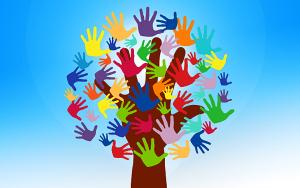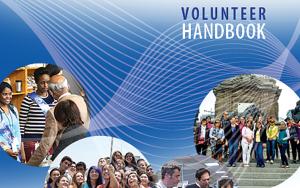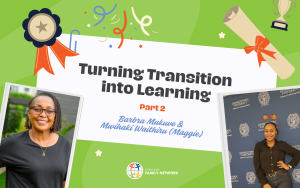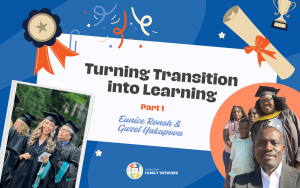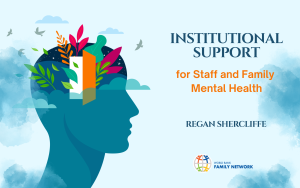
(This article was first published on the WBFN website in 2017)
By Roua Hijazi, Clinician
Children who are exposed to domestic abuse experience a range of adverse emotional, psychological, neurobiological and behavioral consequences that could affect their development and longer-term wellbeing as adolescents and as adults. The Adverse Childhood Experiences Study (ACE) revealed that a higher number of adverse childhood experiences, including exposure to domestic violence, increases the risk of health, social and behavioral problems throughout the lifespan.
Until recently, there has been a widely held misconception that infants or very young children are not affected by stress resulting from domestic violence. It has been shown however that infants, even in utero, are affected by trauma, including the trauma of domestic violence. According to UNICEF, about 275 million children worldwide are exposed to domestic violence, which is a pervasive human rights challenge all over the world irrespective of ethnicity, geography, culture and economic status.

Source: The Adverse Childhood Experiences study, CDC
What is it like for a child to live in a domestic violence environment?
Children living in a domestic violence environment are always on guard, not knowing what to expect or when the next abusive episode will happen. Accordingly, they tend to lack a sense of security and trust in their environment and they may develop a view of the world as an unsafe place. They find it hard to seek help from adults when under stress, since the adults in their life cannot protect themselves or protect them. On the other hand, they develop ambivalent feelings towards both parents ranging from rejecting the abusive parent for their violence to admiring them for their power, while allying with the abused parent in their pain yet, resenting them for their helplessness.
Emotional and psychological consequences
Children witnessing domestic violence may become anxious and vulnerable, as they live in constant fear and uncertainty. They feel guilty and blame themselves for the abuse, thinking that that they may have caused it or could have prevented it. Some children become isolated and withdrawn and have difficulties making connections with friends. Others lack the capacity to feel empathy and compassion for others. It is also possible for the children to feel depressed and have angry outbursts as they struggle to make sense of the confusing reality of domestic violence. Later in life, they may suffer from anxiety, depression, suicidal thoughts, and Post-Traumatic Stress Disorder (PTSD).
Neurobiological implications
Children exposed to domestic violence experience constant activation of their stress response system, which is particularly harmful during sensitive periods of brain development. Studies have shown that the persistent fear and anxiety resulting from such stress exposure could negatively affect the developing architecture of the brain, impacting the child’s ability to learn, regulate emotions, and engage in social interactions, leading to lifelong physical and psychological consequences. Children witnessing domestic violence could also suffer from impaired cognitive and sensory issues, including developmental delays in speech, motor or cognitive skills.
Behavioral changes
Children exposed to domestic violence exhibit a range of behavioral problems, including risky behaviors later on in life. They learn that violence solves problems, and use it themselves instead of developing conflict resolution skills. They may become aggressive, act out and engage in anti-social behavior with peers. They could face challenges at school, including difficulty concentrating, hyperactivity, attention deficits, and poor academic performance. Some children experience developmental regressions such as bedwetting. Others experience sleep disruptions and nightmares. During their teenage and adult years, they could struggle with risky behaviors including substance abuse, self-injuring behaviors, juvenile pregnancy, eating problems, and criminal behaviors.
The way towards healing
Children who have witnessed domestic violence can recover, develop coping skills and heal from the traumatic experience. One crucial factor that could promote the healing process is a strong relationship with a caring non-abusive parent or caregiver. Such a secure relationship would help the child regain a sense of safety and predictability, and build resiliency to be able to bounce back from the adverse impact of the trauma of domestic violence.
Another important protective factor is a supportive environment, consisting of a safe home, an enabling school environment, and access to supportive resources in the community including children’s advocacy programs and supportive educational programs.
Working with a supportive therapist could also help the child process the traumatic experience and develop coping skills and a sense of agency and control over their environment. Supportive counseling interventions for children could include empathic listening, Trauma-Focused Cognitive Behavioral techniques, art and play therapy, Sand Tray therapy, and family systems therapy approaches. At the WBG, spouses and their families can access counseling support through the WBFN Family Consultation Services (FCS) Program (Tel: 202-458-5550) and the Domestic Abuse Prevention Program (202-458-5800). Although FCS does not provide counseling for children under the age of 18 years old, FCS counselors can work with parents to help them obtain relevant referrals sources so that they can get the help they need. Parents may also chose to work with counselors at FCS to help them provide supportive parenting in such cases where a child has been exposed and traumatized.
The author, Roua Hijazi, is a clinician with the WBG’s HSD and WBFN.
Sources:
Centers for Disease Control and Prevention. The Adverse Childhood Experiences (ACE) Study. https://www.cdc.gov/violenceprevention/acestudy/
Harvard Center on the Developing Child. http://developingchild.harvard.edu/resources/persistent-fear-and-anxiety-can-affect-young-children
Lundy, Brancroft (2004). When Dad Hurts Mom: Helping Your Children Heal the Wounds of Witnessing Abuse. Boston: Putnam’s Sons.
Shonkoff et al. 2011. The lifetime effects of early childhood adversity and toxic stress. Pediatrics Technical report. www.pediatrics.org/cgi/doi/10.1542/peds.2011-2663.
UNICEF (2006). Behind Closed Doors, the Impact of Domestic Violence on Children. New York.


